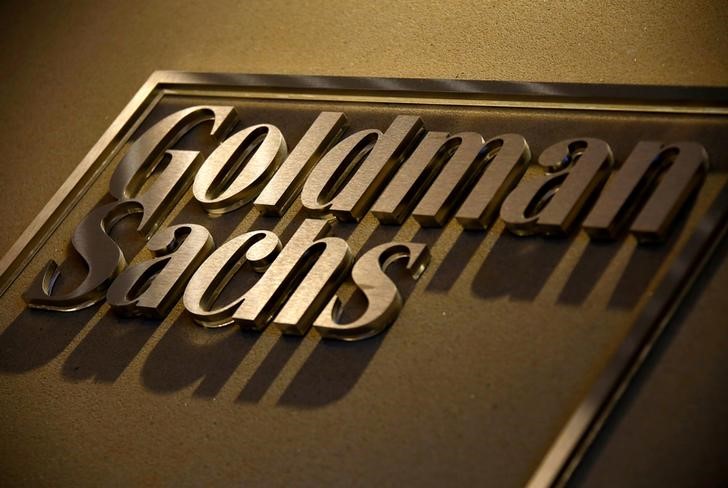This post was originally published on this site
https://i-invdn-com.investing.com/trkd-images/LYNXMPEJ0M04H_L.jpg
NEW YORK (Reuters) -Goldman Sachs Group Inc’s asset management arm will significantly reduce the $59 billion of alternative investments that weighed on the bank’s earnings, an executive told Reuters.
The Wall Street giant plans to divest its positions over the next few years and replace some of those funds on its balance sheet with outside capital, Julian Salisbury, chief investment officer of asset and wealth management at Goldman Sachs (NYSE:GS), told Reuters in an interview.
“I would expect to see a meaningful decline from the current levels,” Salisbury said. “It’s not going to zero because we will continue to invest in and alongside funds, as opposed to individual deals on the balance sheet.”
Goldman had a dismal fourth quarter, missing Wall Street profit targets by a wide margin. Like other banks struggling as company dealmaking stalls, Goldman is letting go of more than 3,000 employees in its biggest round of job cuts since the 2008 financial crisis.
The bank will provide further details on its asset plan during Goldman Sachs’ investor day on Feb. 28, he said. Alternative assets can include private equity or real estate as opposed to traditional investments such as stocks and bonds.
EARNINGS VOLATILITY
Slimming down the investments on a bank’s balance sheet can reduce volatility in its earnings, said Mark Narron, senior director of North American banks at credit rating agency Fitch Ratings. Shedding investments also cuts the amount of so-called risk-weighted assets that are used by regulators to determine the amount of capital a bank must hold, he said.
Goldman Sachs’ asset and wealth management posted a 39% decline in net revenue to $13.4 billion in 2022, with its revenue from equity and debt investments sinking 93% and 63%, respectively, according to its earnings announced last week.
The $59 billion of alternative investments held on the balance sheet fell from $68 billion a year earlier, the results showed. The positions included $15 billion in equity investments, $19 billion in loans and $12 billion in debt securities, alongside other investments.
“Obviously, the environment for exiting assets was much slower in the back half of the year, which meant we were able to realize less gains on the portfolio compared to 2021,” Salisbury said.
If the environment improves for asset sales, Salisbury said he expected to see “a faster decline in the legacy balance sheet investments.”
“If we would have a couple of normalized years, you’d see the reduction happening,” in that period, he said.
PRIVATE CREDIT
Clients are showing keen interest in private credit given sluggish capital markets, Salisbury said.
“Private credit is interesting to people because the returns available are attractive,” he said. “Investors like the idea of owning something a little more defensive but high yielding in the current economic environment.”
Goldman Sachs’ asset management arm closed a $15.2 billion fund earlier this month to make junior debt investments in private equity-backed businesses.
Private credit assets across the industry have more than doubled to over $1 trillion since 2015, according to data provider Preqin.
Investors are also showing interest in private equity funds and are looking to buy positions in the secondary market when existing investors sell their stakes, Salisbury said.
The U.S. investment-grade primary bond market kicked off 2023 with a flurry of new deals.
The market rally has “more legs” because investors are willing to buy bonds with longer maturities while seeking higher credit quality because of the uncertain economic environment, he said.
Goldman Sachs economists expect the Federal Reserve to raise interest rates by 25 basis points each in February, March and May, then holding steady for the rest of the year, Salisbury said.
More broadly, the “chilling effect” of last year’s rate hikes is starting to cool economic activity, Salisbury said, citing softer hiring activity and slowing growth in rents.

